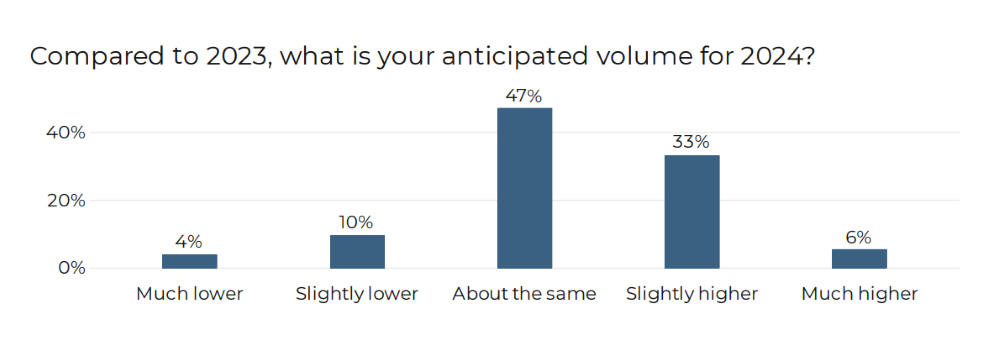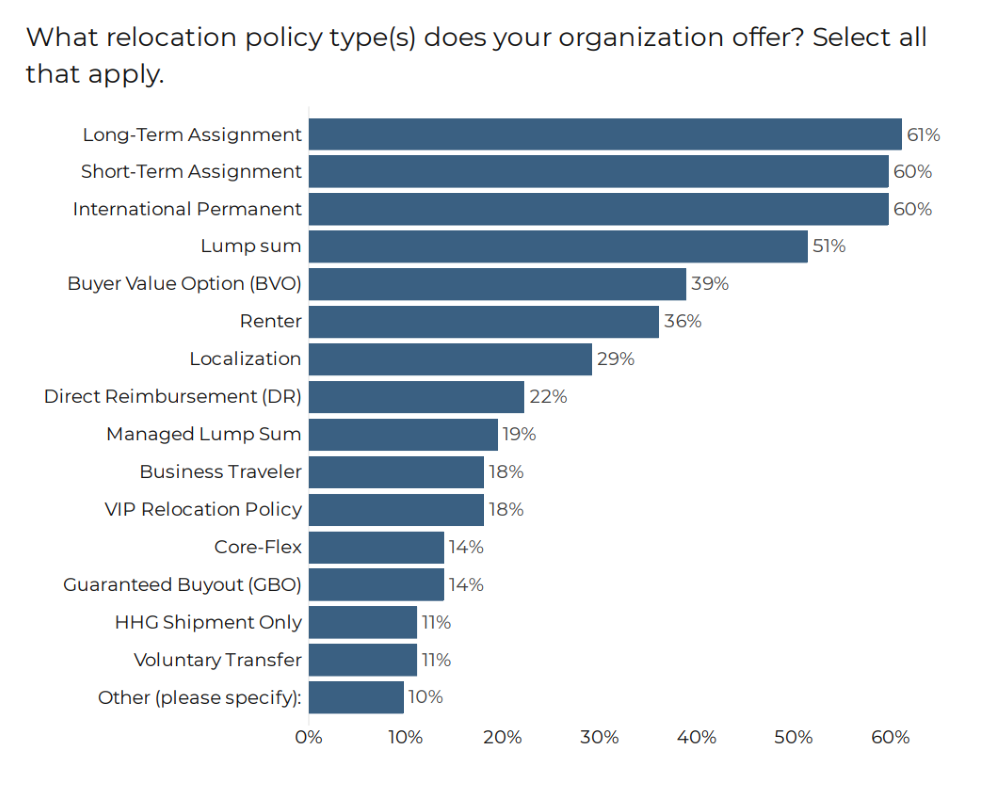
Employers said relocation programmes facing cost reduction pressure

Four in 10 organisations are anticipating more employee relocations or assignments in 2024, according to a new report from WHR Global.
Its Global Mobility Benchmark Report revealed that 33% of employers are expecting "slightly higher" volumes of relocations this year, while six per cent are anticipating "much higher" volumes.
Some of the factors influencing organisations' anticipated relocation volume include:
 Source: WHR Global's Global Mobility Benchmark
Source: WHR Global's Global Mobility Benchmark
There were roughly 6,000 relocations and assignments held in 2023, according to the report.
The most offered relocation policy type is the Long-Term Assignment type, offered by 61% of companies. Others are also offering Short-term Assignments (60%) and International Permanent relocation policy (60%).
 Source: WHR Global's Global Mobility Benchmark
Source: WHR Global's Global Mobility Benchmark
Despite the anticipated increase in relocations, the report found that a majority of these programmes are facing internal pressure to reduce costs.
"Cost reduction remains a key focus for 68% of relocation programmes, with strategies like requiring cost estimates for each relocation and monitoring budget-to-actual spend being commonly employed," said Heather Hess, director of global operations, in the report.
Immigration support emerged as the most-extended benefit when it comes to international permanent transfers (100%) and international assignment (100%) packages, the report also found.
Jenny Elsby, client services manager, EMEA, said it was "not surprising" that immigration support is most offered for international relocation programmes.
"Immigration support, together with tax counselling, would be the minimum level of support that we would recommend when supporting an international transfer or assignment, as we, and many of clients, consider these two compliance-related items to be core benefits, even for moves that are budget driven," Elsby said in the report.
By location, Africa emerged as the most difficult location to relocate employees, according to the report.
A majority of the respondents cited the location's political climate (71%), culture (53%), and immigration (53%) as some of the challenges when moving employees to Africa.
"Conducting an immigration feasibility check before the planned relocation takes place is highly recommended to avoid last-minute curve balls," said Rowen Wong, client services manager, APAC, in the report.
"In addition to providing cultural training, assigning a local buddy helps the expatriate to integrate into the local community."